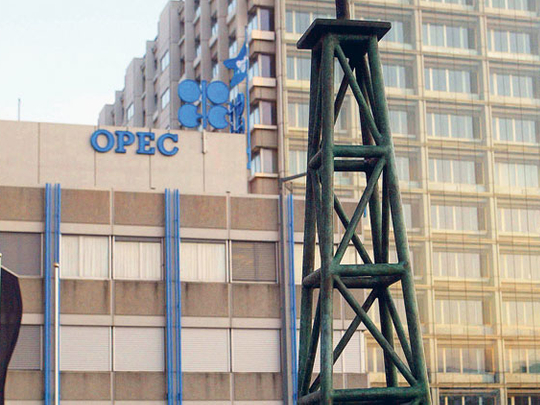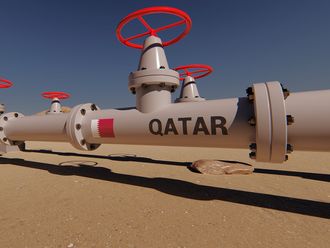
London: The Organisation of Petroleum Exporting Countries (Opec) is meeting only half its promised cuts in oil supply this month thanks to a big jump in exports from Nigeria and despite a smaller decline in production in Angola, a Reuters survey showed yesterday.
Supply from the 11 members of Opec with output targets, all except Iraq, has averaged 26.95 million barrels per day (bpd) this month, up from 26.75 million bpd in June, according to the survey of oil firms, Opec officials and analysts.
Supply from Opec is 2.11 million bpd higher in July than Opec's target of 24.84 million bpd, meaning the group achieved just 2.09 million bpd of the promised curbs.
That left compliance at fractionally under 50 per cent, down 5 percentage points from June and the lowest since the current supply targets were adopted in December 2008.
Compliance peaked at 81 per cent in March and April 2009, according to Reuters estimates.
With two days left of July, the final figures for the month may change.
"Opec compliance is slipping and it probably doesn't matter as long as the oil market is fairly strong. Problems will come if prices take a dive but that doesn't look likely on balance at the moment," said Simon Wardell, director of global oil research at consultants IHS Global Insight.
"At between $70 (Dh257) and $80 per barrel, Opec can get away with producing more than planned."
Eugen Weinberg, head of commodity research at Commerzbank in Frankfurt agreed: "As long as the prices stay comfortably above $70, we should expect the compliance rate to fall further."
Benchmark US crude oil futures were trading around $76.70 per barrel at 1230 GMT yesterday.
Opec, the source of more than a third of the world's oil, has left its output ceiling unchanged for more than a year since announcing a record supply curb of 4.2 million bpd in December 2008 to combat lower demand and prices.
Total Opec supply including Iraq is up 130,000 bpd at 29.23 million bpd in July, the survey found. Output is almost back up to the total in May of 29.29 million bpd, which was the highest since December 2008 according to Reuters estimates.
Nigerian crude oil production has jumped almost 250,000 bpd in July thanks to another 100,000 bpd of output from the EA stream, 80,000 bpd more of benchmark Qua Iboe crude and 30,000 bpd more of Escravos, trade and industry sources said.
Qua Iboe production had been under force majeure since May following a pipeline leak. A total of 76 cargoes of Nigerian crude are expected to load this month, up from 67 cargoes in June, traders and shipping sources say.
Eleven 950,000-barrel cargoes of Qua Iboe crude have shipped in July, according to loading schedules and industry sources, up from eight loaded in June.
Technical issue
French company Total has said Amenam crude output will be reduced slightly due to a technical issue in August and September with output expected to average around 90,000-95,000 bpd, down from 120,000 bpd planned.
But traders said output in July was unlikely to be affected.
Angolan supply meanwhile has slipped by 130,000 bpd to 1.7 million bpd with several loading streams reduced. Despite the fall, the country is still well above its Opec target.
Iraq's supply declined because of a decrease of around 60,000 bpd in exports from Basra.











